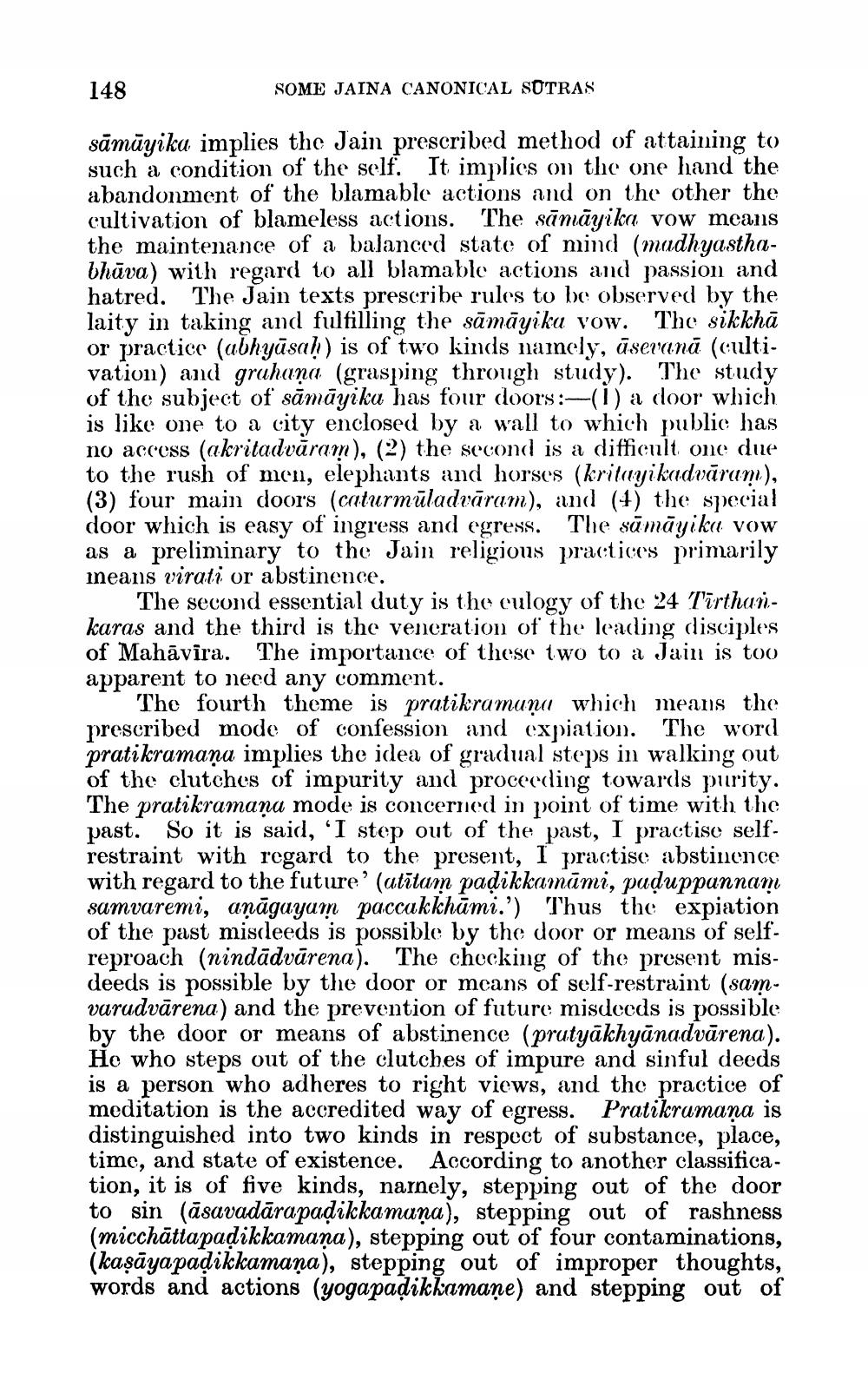________________
148
SOME JAINA CANONICAL SOTRAS
sāmāyika implies the Jain prescribed method of attaining to such a condition of the self. It implies on the one hand the abandonment of the blamable actions and on the other the cultivation of blameless actions. The sāmāyika vow means the maintenance of a balanced state of mind (madhyasthabhāva) with regard to all blamable actions and passion and hatred. The Jain texts prescribe rules to be observed by the laity in taking and fulfilling the sāmāyika vow. The sikkhā or practice (adhyāsah) is of two kinds namely, āsevanā (cultivation) and grahaņa (grasping through study). The study of the subject of sāmāyika has four doors:-(1) a door which is like one to a city enclosed by a wall to which public no access (akritadvāram), (2) the second is a difficult one due to the rush of men, elephants and horses (kritayikadvāram), (3) four main doors (caturmāladvāram), and (1) the special door which is easy of ingress and egress. The sāmāyiku vow as a preliminary to the Jain religious practices primarily means virati or abstinence.
The second essential duty is the culogy of the 24 Tīrthankaras and the third is the veneration of the leading disciples of Mahāvira. The importance of these two to a Jain is too apparent to need any comment.
The fourth theme is pratikramaņa which means the prescribed mode of confession and expiation. The word pratikramaņa implies the idea of gradual steps in walking out of the clutches of impurity and proceeding towards purity. The pratikramaņa mode is concerned in point of time with the past. So it is said, 'I step out of the past, I practise selfrestraint with regard to the present, I practise abstinence with regard to the future' (atitam padikkamāmi, paduppannam samvaremi, aņāgayam paccakkhāmi.') Thus the expiation of the past misdeeds is possible by the door or means of selfreproach (nindādvārena). The checking of the present misdeeds is possible by the door or means of self-restraint (sam. varudvārena) and the prevention of future misdeeds is possible by the door or means of abstinence (prutyākhyānadvārena). He who steps out of the clutches of impure and sinful deeds is a person who adheres to right views, and the practice of meditation is the accredited way of egress. Pratikramana is distinguished into two kinds in respect of substance, place, time, and state of existence. According to another classification, it is of five kinds, narnely, stepping out of the door to sin (āsavadārapadikkamaņa), stepping out of rashness (micchättapadikkamaņa), stepping out of four contaminations, (kaşāya padikkamaņa), stepping out of improper thoughts, words and actions (yogapadikkamaņe) and stepping out of




